Recently, I met a new “Ola” (Jewish immigrant to Israel) who told me she would like to vote in the coming general election, but she does not understand Israel’s politics and political parties. I can relate to that: I recently had the pleasure of filling in my absentee ballot for the American election. Not knowing anything about the various candidates for Congress and the Senate, I refrained from filling in that part of the ballot and voted only for my choice of President.
Therefore, in the three months remaining until Israel’s general election, I hope to bring regular updates on the various parties running for the Knesset. In this update, I will give a general survey of what’s going on in the various parties. The order of the parties is according to current size.
Likud
Current number of seats: 28
Estimated number of seats according to recent polls: 28-29
Date for primary election: November 25
What’s new: Likud originally achieved 27 seats in the previous election. During the summer session, Tzachi Hanegbi, an MK who used to be a Likud member but moved to Kadima, returned to Likud, thus brining the party’s number of seats up to 28 and Kadima’s down to 27.
Avi Dichter, former chief of the ISA (Israeli Security Agency), also left Kadima and resigned from the Knesset (because his party, Kadima, is in the opposition) in order to assume the post of Minister for Home-Front Defense, a post created within the Defense Ministry. The post had previously been held by Matan Vilnai of the Atzmaut party, who is now Israel’s new ambassador to China. Last week, Dichter announced that he too would be competing for a place in Likud.
Earlier this week, Moshe Kahlon, who is currently serving both as Minister of Communication and as Minister of Social Affairs & Social Services, announced that he would not be competing in the primary election. Kahlon, who is considered a rising star in the Likud, is respected by the left as well as the right and his announcement was met with dismay on all fronts.
Likud’s primary election laws state that any MK (current of former) must compete for a slot on the “national list”. Slots 1-20 in Likud’s list are reserved for the “national list”, while the slots after that are reserved for candidates from the various districts. Slots for the national list resume around slot number 35, meaning that 28 MKs will be competing for 20 slots.
Kadima (“Forward”)
Current number of seats: 27
Estimated number of seats according to recent polls: 3-9
Date for primary election: None.
What’s new: Kadima under the leadership of Shaul Mofaz is a sinking ship, and everyone wants off. Over the past few months there have been rumors of many MKs holding secret meetings with members of other parties (mostly Labour and Likud, Kadima’s parent parties) in attempts to find themselves new homes. Avi Dichter and Tzachi Hanegbi have already moved over to Likud.
Earlier this week, the party MKs approved a motion to cancel the primary elections in Kadima. I can only imagine that the MKs who approved this either know that they will be receiving one of the top 3 slots in the party list or that they have already made arrangements to join other parties.
Meanwhile, there has been talk of the two former heads of Kadima, Ehud Olmert (former Prime Minister), who is currently still on trial for numerous charges of corruption and Tzipi Livni who was voted out of the leadership of the party earlier this year, joining forces (perhaps with Yair Lapid, perhaps with Haim Ramon, formerly of Kadima) to form some sort of “mega party”, as the pollsters have put it, which may receive up to 25 seats. Personally, I find it hard to believe that the public would vote for two convicted felons (Olmert and Ramon), a failure (Livni) and a journalist (Lapid) to run the country. Since, so far, this rumor exists entirely in the imaginations of pollsters, I’ll speak no more of it.

Haim Ramon. Was convicted of kissing a 19 year-old soldier against her will. With tongue. Photo: Knesset website.
Yisrael Beiteinu (“Israel is our home”)
Current number of seats: 15
Estimated number of seats according to recent polls: 13-16
Date for primary election: None.
What’s new: There is no obligation by law for a party to hold primary elections. Yisrael Beiteinu is one of the parties that do not do so. The entire list is decided by the party leader, Avigdor Lieberman, who is currently serving as Foreign Minister. Therefore, there is not much to say about this party until the list is published. I suspect that MK Anastasia Michaeli will not be on it after she caused too much embarrassment over the past two years, in such incidents as pouring a glass of water over the head of one of the Arab MKs who had made sexist remarks about her. To be fair, he deserved it.
Shas
Current number of seats: 11
Estimated number of seats according to recent polls: 9-13
Date for primary election: None.
What’s new: Shas’s list is decided by Rabbi Ovadia Yossef, the spiritual leader and founder of the party, along with two other Rabbis, handpicked by Rabbi Yossef himself. Earlier this week, the drama of who is to lead the party in the elections came to an end. Arie Deri, the much-loved leader of the party in the 90s decided to return to politics after serving time, yes, time, in jail for corruption charges. Eli Yishay, the current leader of the party (currently also Minister of the Interior) ever since Deri’s departure, obviously wants to stay in the leadership. The decision made by Rabbi Ovadia Yossef was that the party would be led by a Triumvirate of Deri, Yishay and Ariel Attias, who is currently Minister of Housing. A more conventional decision will be made after the elections.
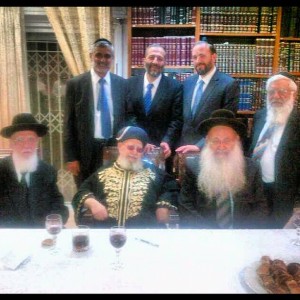
Top: The Triumvirate. From Left: Yishay, Deri and Attias. Rabbi Ovadia Yossef is in bottom center. Photo: Eli Yishay’s Facebook page.
The Labor Party
Current number of seats: 8
Estimated number of seats according to recent polls: 17-23
Date for primary election: November 27th.
What’s new: Labor under Shelly Yachimovitch is a popular place to be. Approximately 12 new seats may become available after the election and everybody wants a piece of the action. Over the past weeks, many “stars” have announced their intention to compete for a seat in the next Knesset as Labor party members. Here are some of the names:
- Noam Shalit – father of Gilad Shalit, the soldier who was abducted and held in captivity by Hamas for five years. Shalit became a public figure during his campaign to force the government to bargain with the terrorists for the release of his son. Shalit was released last year in return for the release of 1,100 Palestinian prisoners, many of whom were incarcerated for terrorism and murder of Israeli citizens.
- Omer Bar-Lev – former colonel in the IDF. His father was the IDF’s chief of staff from 1968-1972 and later served as a member of Knesset and a minister in the government. The Labor party leadership always had a prominent former military figure (such as Dayan, Rabin, Ben-Eliezer, Vilnai, Ehud Barak, etc.) and Yachimovitch’s party sorely needs a new military figure now that Barak is no longer in Labor.
- Stav Shafir – one of the leaders of last summer’s social protest.
- Itzik Shmuli – head of the national students’ union and also a leader of the social protest.
- Mickey Rosenthal– journalist. He is best known for his investigative reporting shows on channel 2. Yachimovitch herself left a career on channel 2 prior to being elected to the Knesset in 2006.
Yachimovitch claims that she is an alternative to Netanyahu as Prime Minister. She quite possibly will be the leader of the 2nd largest party in the next Knesset. However she has no governmental experience, and has spent most of her tenure in the Knesset as a member of the opposition.
Atzmaut (independence)
Current number of seats: 5
Estimated number of seats according to recent polls: 0-2
Date for primary election: Unknown.
What’s new: Atzmaut was Ehud Barak’s way of saving his political career when he realized he did not have a chance of being re-elected as head of the Labor party. He took four other Labor members with him and founded a new party. Barak is a former IDF Chief of staff (1991-1995), former Prime Minister (1999-2001) and is the current Minister of Defense. Now it looks like the end of the road for Barak and his party. To date, it is unclear what his party stands for, who will be competing in the elections, and if there will be a primary election. There have been rumors of Netanyahu planning to save a seat for Barak in the Likud, but those rumors have been proven false.
Yahadut Hatorah (Judaism of the Torah)
Current number of seats: 5
Estimated number of seats according to recent polls: 5-6
Date for primary election: None.
What’s new: Nothing’s new. Yahadut Hatorah is an Ashkenazi Ultra-Orthodox party. The list is made up by Rabbis who lead the two sections of the party (Lithuanian and Hassidic). Many members of the Ashkenazi Ultra-Orthodox community refrain from taking part in the elections, rendering the natural growth of the community ineffective in relation to the community’s electoral power.
Ha-Ichud Ha-Leumi (National Unity)
Current number of seats: 4
Estimated number of seats according to recent polls: It’s complicated.
Date for primary election: It’s complicated.
What’s new: Ha-Ichud Ha-Leumi is made up of a number of smaller right-wing parties. The current MKs are Yaakov Katz, Uri Ariel, Arie Eldad and Michael Ben-Ari. Katz and Ariel have agreed to merge the party with Habayit Hayehudi (Jewish Home), the national religious party, in zipper fashion: one party gets the first slot, the other gets the second, and so forth. .
Arie Eldad’s section of the party is the only one that holds primary elections, which are planned for November 8th.
Meanwhile, Eldad and Ben-Ari claim that they have not agreed to the merger with Habayit Hayehudi, and that the slots they would receive would be unrealistic, thus pushing them out of the Knesset. On October 18th, Eldad posted a message on his Facebook page saying that instead of achieving unity by merging with Habayit Hayehudi, Katz and Ariel were actually creating new divisions.
Polls regarding Ha-Ichud Ha-Leumi have been inconsistent, because sometimes they have been merged with Habayit Hayehudi and range from 2 (separate) to 6 seats (merged).
Habayit Hayehudi (The Jewish Home)
Current number of seats: 3
Estimated number of seats according to recent polls: 5-8
Date for primary election: November 6th.
What’s new: This year, the national-religious party decided to hold its first-ever primary election, realizing that its old fashioned politics were driving the voters away. The three contenders for the leadership of the party went around the country and convinced voters to join the party as members. At the end of the registration period, the party announced that 52 thousand people had joined, making it the party with one of the largest memberships (in comparison, the Likud, which has the largest membership, has 130 thousand members). The three contenders are:
– Rabbi Prof. Daniel Hershkovitz– currently the head of the party and Minister of Science and Technology. He was handpicked by a committee of Rabbis prior to the previous election. This is his first term in the Knesset.
– Zvulun Orlev– is an old-school national religious politician. He has been a member of Knesset since 1999 (4 terms) and is considered one of the top legislators in the Knesset.
– Naftali Bennet– is the youngest contender (born 1972). He comes from the world of hi-tech, but previously served as head of Prime Minister Netanyahu’s primary election campaign (2008) and in other capacities under Netanyahu. He also served as director general of the Yesha council (2010), the umbrella organization of municipal councils of Jewish settlements in Judea and Samaria (and formerly also the Gaza strip). He is most likely to win the primary election and the only one of the three capable of reviving the party. The third current MK, Uri Orbach, supports Bennet.
Meretz
Current number of seats: 3
Estimated number of seats according to recent polls: 0-5
Date for primary election: November 11th.
What’s new:In addition to the three current MKs, Zehava Gal’on (current head of the party), Ilan Gil’on and Nitzan Horowitz, former MK Avshalom Vilan has also announced he will be seeking re-election. At the moment there aren’t many seats to go around. One poll (admittedly it was one of the polls which invented the mega-party I mentioned earlier), even gave the party 0 seats in the next Knesset.
The Arab parties (Hadash, Balad, Raam-Taal)
Current number of seats: 11 (4,3 and 4, respectively)
Estimated number of seats according to recent polls: 11
What’s new: Among my many criticisms of the Israeli media, one of them is the fact that the mainstream media completely ignores the Arab parties in the Knesset. The Arab parties themselves don’t make it any easier by having websites in Hebrew or English, so that there is very little public knowledge about the workings of these three parties, unless you speak Arabic. Also, they are usually polled together. Despite my best efforts, I have yet to find out what method is used in forming the party lists or what the ideological differences between them are (there are very short wikipedia descriptions of them, but not very helpful ones).
What is reported of these parties is mainly the exploits of their members.
There is an attempt by Likud members to disqualify Hanin Zuabi, a female member of Balad, because of her participation in the Mavi Marmara flotilla, in which IDF soldiers were beaten by so-called peace activists on their way from Turkey to Gaza. She has also declared her support for the terrorist organization Hamas and has even met with members of Hamas’s leadership as well as with former Libyan dictator, Moammar Gaddafi.
There is also an attempt to disqualify Ahmed Tibi, head of Raam-Taal, and former advisor to the late PLO chief, Yasser Arafat, because of a speech he made earlier this year, praising the Shahids, or martyrs, who have died in their fight against Israel.
Am Shalem
Current number of seats: 1 (as part of Shas)
Estimated number of seats according to recent polls: ?
Date for primary election: None.
What’s new:Am Shalem is the new party declared by Rabbi Haim Amsalem, of Shas. Am Shalem (a whole nation), is a play on Rabbi Amsalem’s own name. Amsalem rebelled against Rabbi Ovadia Yossef and his party, Shas, and was stripped of most of his parliamentary privileges by his party (such as the right to propose legislation). Amsalem has called for Ultra-Orthodox men to enlist in the IDF and for the Sephardic Ultra-Orthodox community to stop following the lead of the Ashkenazi one, and to take a more active part in Israeli society. There has been talk of Amsalem joining forces with Habayit Hayehudi.
Yesh Atid (There is a Future)
Current number of seats: 0
Estimated number of seats according to recent polls: 8-17
Date for primary election: None.
What’s new: Yesh Atid’s founder, Yair Lapid, a journalist in the Yediot Ahronot newspaper and Channel 2 TV, has yet to publish a list of people running with him in his new party. Despite a lot of oratory about his political views, it is still unclear what Lapid’s views really are on many key issues.
What we do know, is that Yaakov Peri, a former chief of the ISA, will be running alongside him. Since his retirement from the ISA, Peri has served as CEO of Cellcom, one of Israel’s three major mobile-phone service providers. He is currently chairman of Mizrahi-Tefahot bank, the fourth largest bank in Israel.
Lapid has been accused of using his former position in the media unfairly. Although he declared his candidacy in May, he has been writing a weekly column in Yediot Ahronot until recently, and has also been granted almost-free access to express his views on channel 2.
For a more basic review of the various parties’ views, see my previous posts:
Israeli Parties and Politics- Part 1
Israeli Parties and Politics- Part 2
For an explanation regarding the various religious groups in Israel (relevant to the parties: Shas, Yahadut Hatora, Habayit Hayehudi and Am Shalem) see this previous post:
Judaism in Israel: Diversity and Collectivism
_________________________________________________________________________
Please Comment, Subscribe and Share!
You can subscribe either via RSS, Email or Facebook (see upper right side).

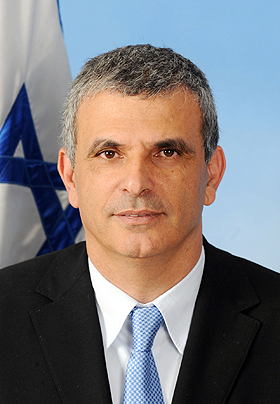

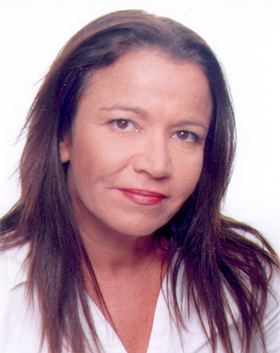


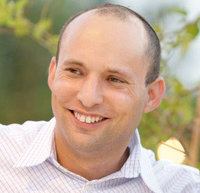
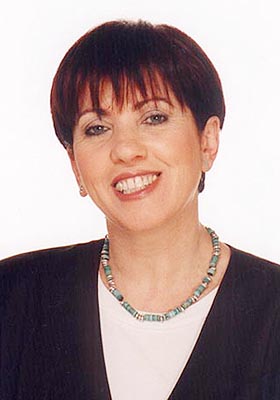

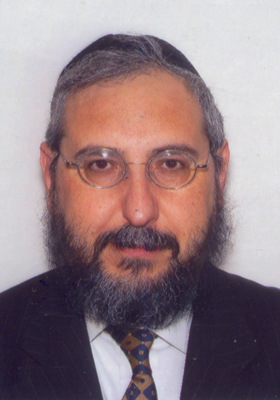

[…] What’s new on the Israeli election front? […]
[…] What’s new on the Israeli election front? […]
[…] What’s new on the Israeli election front? […]
[…] What’s new on the Israeli election front? […]